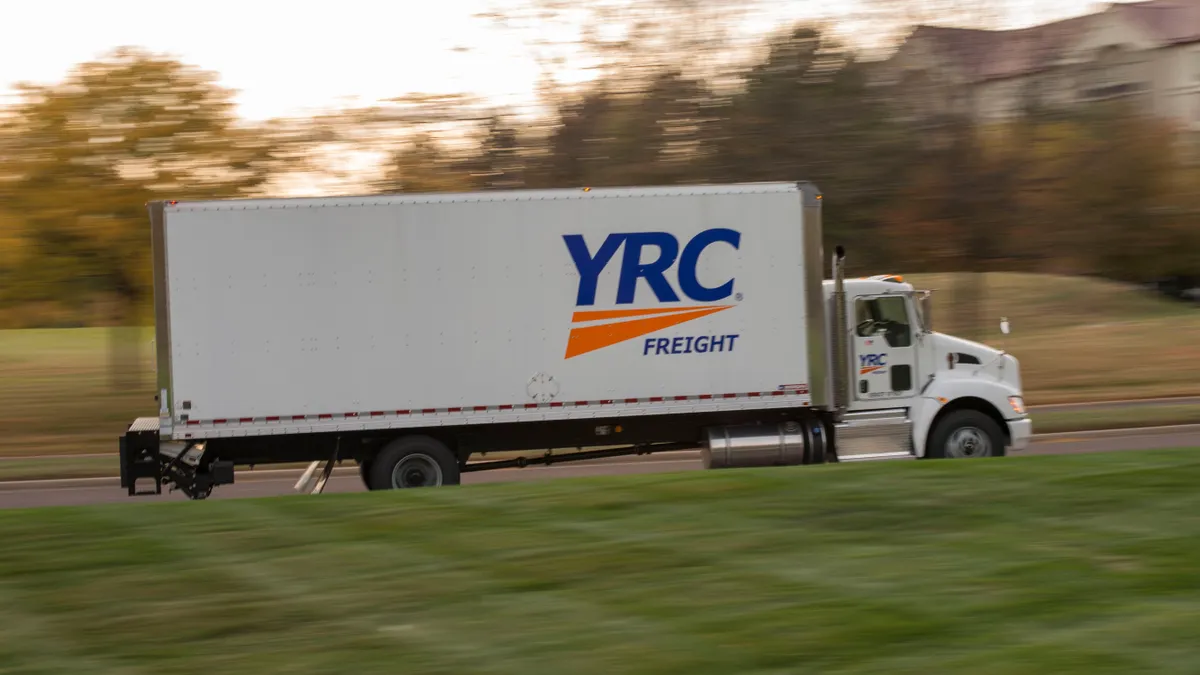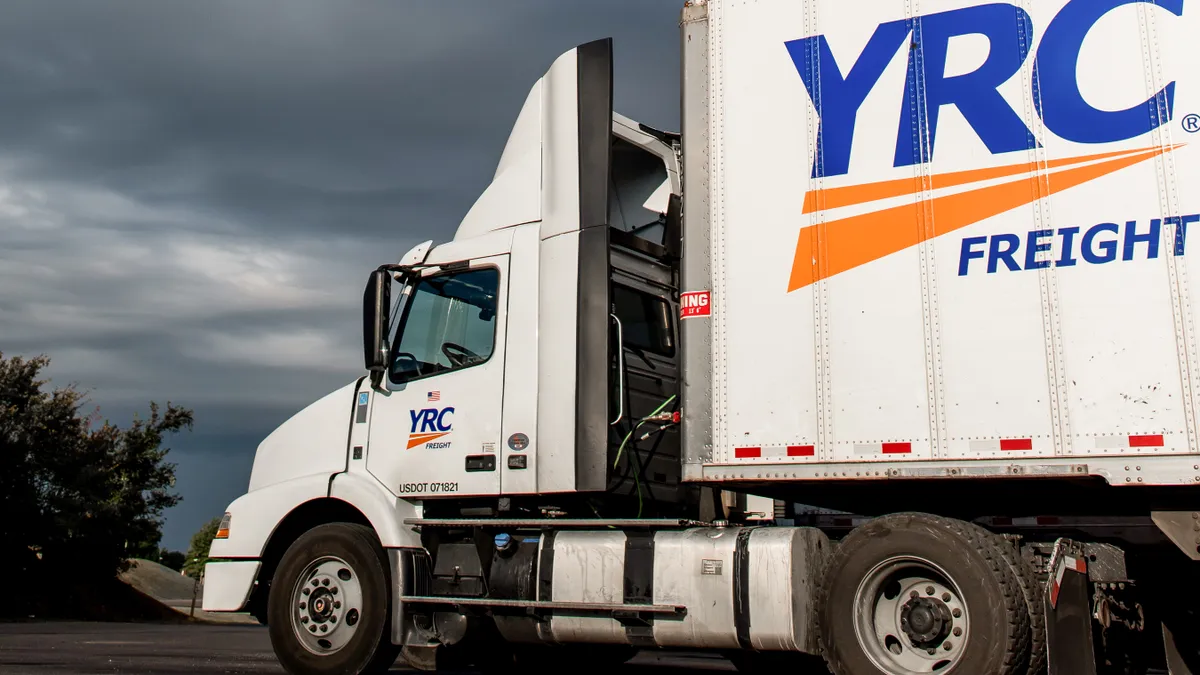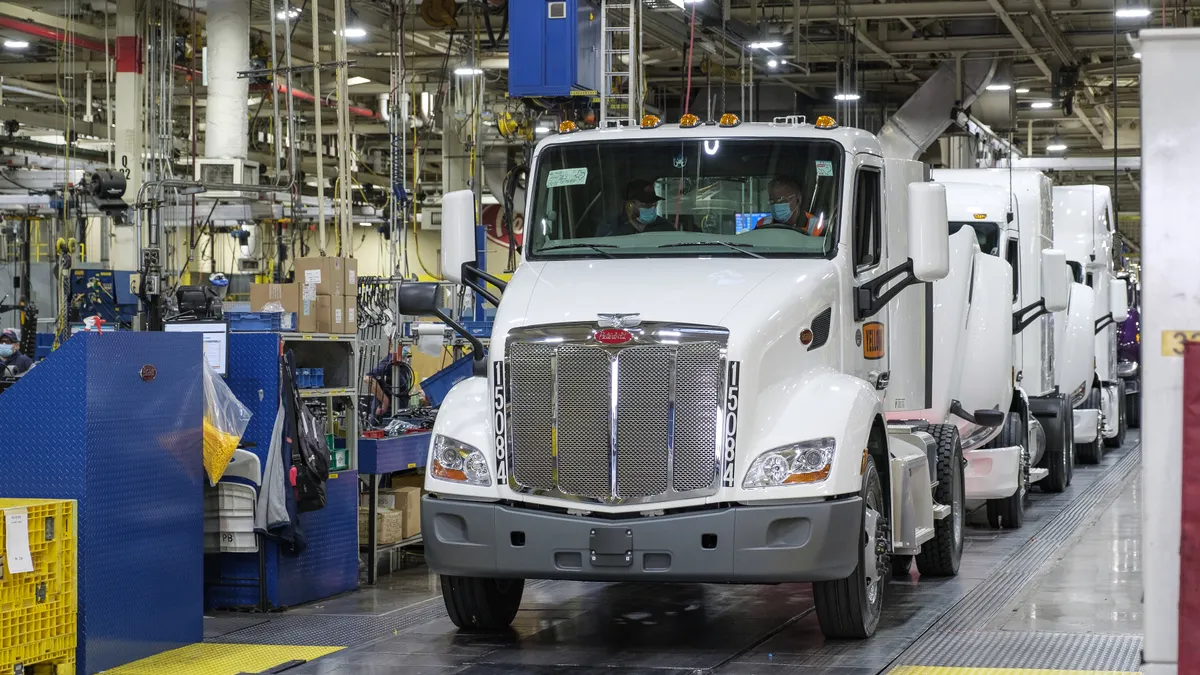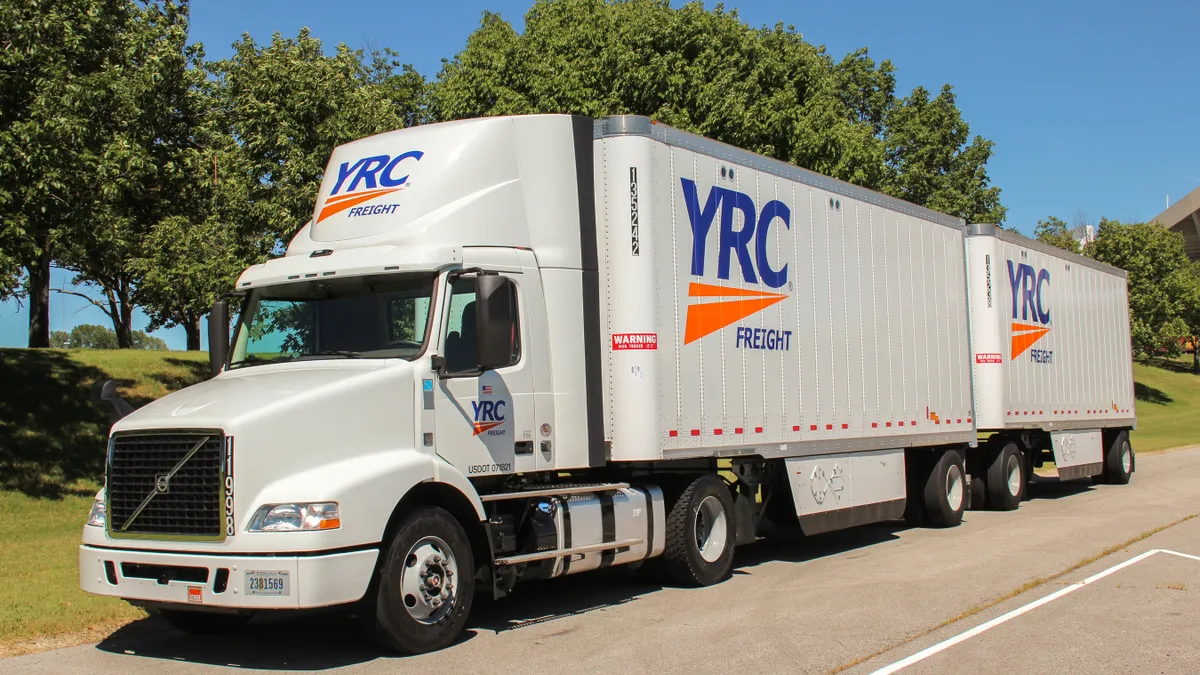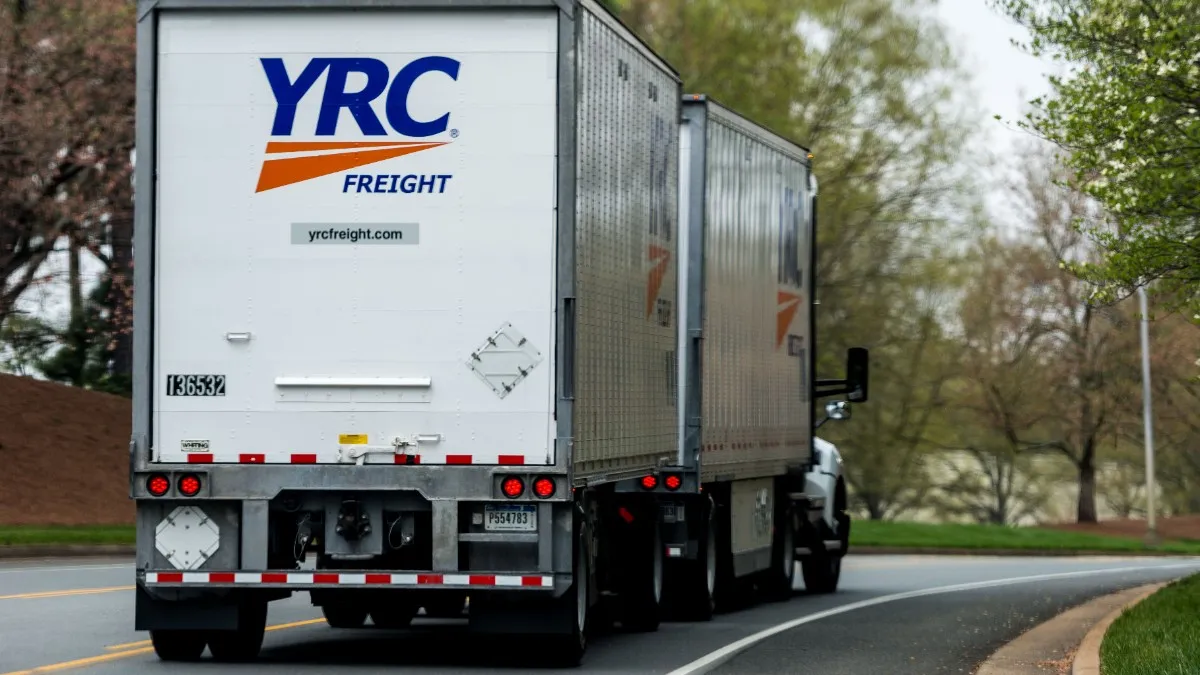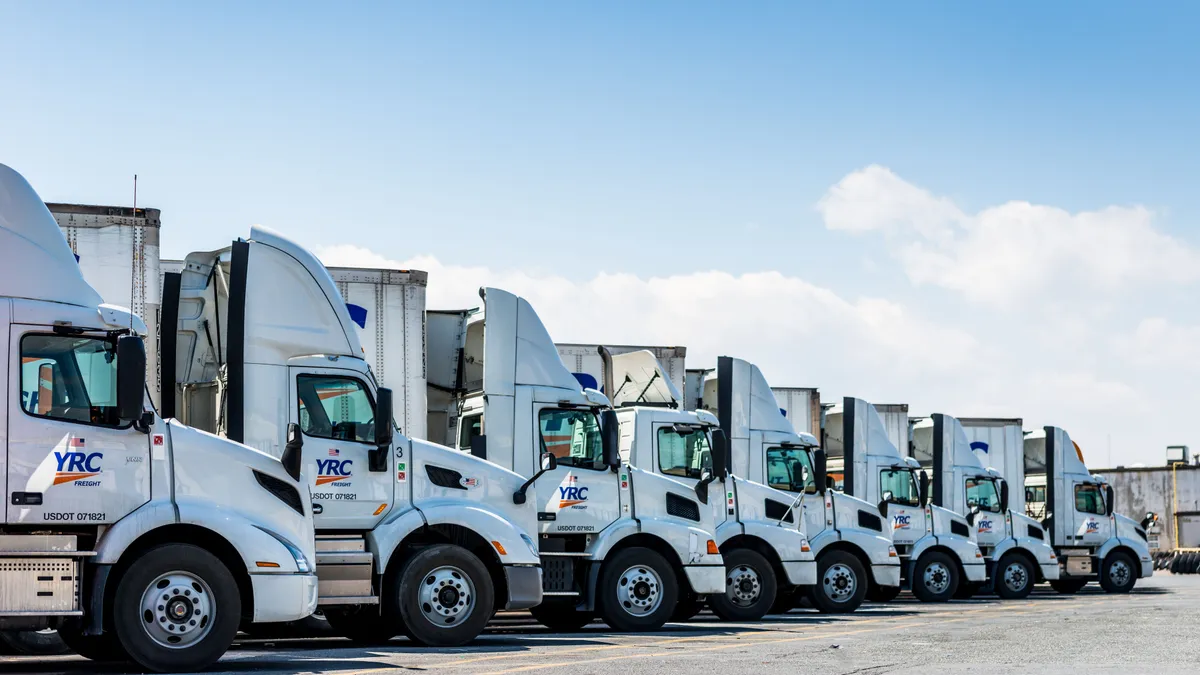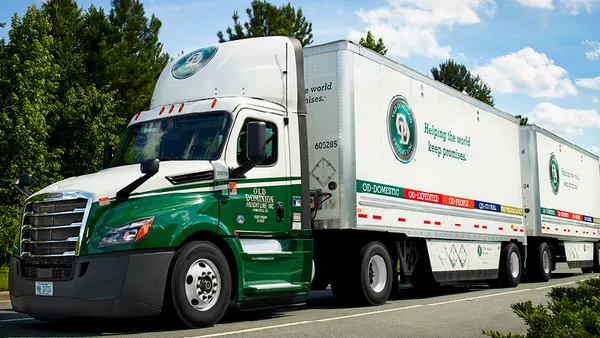UPDATE: July 8, 2020: YRC filed an 8-K with the Securities and Exchange Commission Tuesday regarding its "Share Issuance Agreement" with the Department of the Treasury, in which the carrier will receive a $700 million loan.
Under the terms of the loan, YRC must maintain EBITDA of at least $100 million for fiscal year 2021, $150 million for fiscal 2022 and $200 million for the remaining years of the loan term. The filing is available here.
Dive Brief:
- YRC will receive a $700 million loan from the Department of the Treasury via the CARES Act, the carrier said Wednesday. In return, the Treasury will take a 29.6% stake in YRC's ownership in the form of common stock. It's unclear how Treasury's stock holding will change if or when YRC pays back the loan.
- The carrier will receive the loan in two tranches of $350 million each. Tranche A will cover short-term contractual obligations plus payments for pensions and healthcare. Tranche B will fund capital investment in trailers and tractors.
- YRC is "critical to maintaining national security," the Treasury Department said in announcing the loan. The carrier provides 68% of LTL services to the Department of Defense and hauls for the Departments of Energy and Homeland Security, as well as Customs and Border Protection.
Dive Insight:
YRC has struggled financially for several quarters, reporting a net loss of $104 million in 2019, and the pandemic further stressed the carrier's operations.
According to its 2019 10-K filing with the Securities and Exchange Commission, the carrier has a "significant concentration of customers" in retail and manufacturing — industries that have reduced output and demand for freight throughout the pandemic. March volumes fell 11.3% year over year (YoY). Daily tonnage for YRC's LTL segment dropped 22.6% YoY in April and 14.5% YoY in May.
YRC, facing sharp volume declines, asked the Teamsters for a grace period on health and pension fund payments, the union said in a memo in mid April. YRC employs 30,000 freight workers, including 24,000 Teamsters. Salaries, wages and benefits (for union and non-union workers) make up more than half its operating costs, YRC said in its 10-K.
The first tranche of YRC's loan will go toward the deferred pension and healthcare payments. The Teamsters applauded the loan. "We hope it gives YRCW the economic stability it needs in the months and years to come," Ernie Soehl, Teamsters National Freight Director, said in a statement.
But industry stakeholders question whether $700 million loan will create long-term financial security for YRC. Daniel Lett, director of Global Logistics at Melaleuca, a nutrition and personal care manufacturer, said much of the loan would go toward delayed pension fund payments and not help YRC structurally in the long term. "This will merely prop up the company to sustain (limp along) when the market ... should allow them to go by the wayside and file Chapter 11," Lett said on LinkedIn.
YRC did post a $4.3 million profit in Q1, but $39.3 million property sales were behind the boost of the profit figure into the black. The firm ended 2019 with $862 million in debt.
David Ross, Stifel Financial research managing director, went as far as to suspend ratings for YRC in May "due to uncertainty around the current liquidity situation." Stifel Financial did not respond by press time to a query on whether it plans to resume ratings now that YRC has received a loan.
"If we don't get any good news in the next 30 days, we would not be surprised to see a wind-down of operations on or before July Fourth weekend," Ross wrote in the May memo. The "good news" in the form of a loan has arrived, though after Ross' 30-day window.
If YRC does eventually file for bankruptcy, significant capacity would exit the LTL market, which "would help lift the fortunes of the remaining carriers and thus improve the health of the LTL carrier market as a whole," Kyle Gholston, COO at CargoQuotes and former manager at YRC, wrote on LinkedIn. Other trucking firms would have the opportunity to gain YRC customers or even acquire its assets.



